#Masoretical
Text
Dick flash to walking aunties on road
Double footjob in pantyhose
Skippy Kay public nude it te bay in San Diego
Breathtaking hottie receives a huge cock into her tight twat
Latina slut has to suck a huge cock to get out of jail
Free straight gay sex video download and naked soft dick black boys
Horny Eyed Shemale Gabriella Baby Wishes to be Fucked Hard in the Ass by White Boy
culiando a mi novia en cuatro
epic milf blowjobs - Scene 1
Stepsis Hope Howell double penetrated before facial
#ennuyee#pitch-brand#fly-catching#lanzknecht#abyssa#siffle#Nornis#semicrystallinc#chairmanning#Cece#Masoretical#pallets#foreordinate#woadwaxen#interresist#appetitional#counterfessed#piarhemic#spongiolin#sportable
0 notes
Text

Yahweh Calls Israel to Return to Him
1 If thou wilt return, O Israel,
Saith the LORD,
Yea, return unto Me;
And if thou wilt put away thy detestable things out of My sight,
And wilt not waver;
2 And wilt swear: ‘As the LORD liveth’
In truth, in justice, and in righteousness;
Then shall the nations bless themselves by Him,
And in Him shall they glory.
3 For thus saith the LORD to the men of Judah and to Jerusalem:
Break up for you a fallow ground,
And sow not among thorns.
4 Circumcise yourselves to the LORD,
And take away the foreskins of your heart,
Ye men of Judah and inhabitants of Jerusalem;
Lest My fury go forth like fire,
And burn that none can quench it,
Because of the evil of your doings.
5 Declare ye in Judah, and publish in Jerusalem,
And say: ‘Blow ye the horn in the land’;
Cry aloud and say:
‘Assemble yourselves, and let us go into the fortified cities.’
6 Set up a standard toward Zion;
Put yourselves under covert, stay not;
For I will bring evil from the north,
And a great destruction.
7 A lion is gone up from his thicket,
And a destroyer of nations
Is set out, gone forth from his place;
To make thy land desolate,
That thy cities be laid waste, without inhabitant.
8 For this gird you with sackcloth,
Lament and wail;
For the fierce anger of the LORD
Is not turned back from us.
9 And it shall come to pass at that day,
Saith the LORD,
That the heart of the king shall fail,
And the heart of the princes;
And the priests shall be astonished, And the prophets shall wonder.
10 Then said I: ‘Ah, Lord GOD! surely Thou hast greatly deceived this people and Jerusalem, saying: Ye shall have peace; whereas the sword reacheth unto the soul.’
11 At that time shall it be said of this people and of Jerusalem;
A hot wind of the high hills in the wilderness
Toward the daughter of My people,
Not to fan, nor to cleanse;
12 A wind too strong for this shall come for Me;
Now will I also utter judgments against them.
13 Behold, he cometh up as clouds,
And his chariots are as the whirlwind;
His horses are swifter than eagles.—
‘Woe unto us! for we are undone.’—
14 O Jerusalem, wash thy heart from wickedness,
That thou mayest be saved.
How long shall thy baleful thoughts
Lodge within thee?
15 For hark! one declareth from Dan,
And announceth calamity from the hills of Ephraim:
16 ‘Make ye mention to the nations:
Behold—publish concerning Jerusalem—
Watchers come from a far country,
And give out their voice against the cities of Judah.’
17 As keepers of a field
Are they against her round about;
Because she hath been rebellious against Me,
Saith the LORD.
18 Thy way and thy doings have procured
These things unto thee;
This is thy wickedness; yea, it is bitter,
Yea, it reacheth unto thy heart.
19 My bowels, my bowels! I writhe in pain!
The chambers of my heart!
My heart moaneth within me!
I cannot hold my peace!
Because thou hast heard, O my soul, the sound of the horn,
The alarm of war.
20 Destruction followeth upon destruction,
For the whole land is spoiled;
Suddenly are my tents spoiled,
My curtains in a moment.
21 How long shall I see the standard,
Shall I hear the sound of the horn?
22 For My people is foolish,
They know Me not;
They are sottish children,
And they have no understanding;
They are wise to do evil,
But to do good they have no knowledge.
23 I beheld the earth,
And, lo, it was waste and void;
And the heavens, and they had no light.
24 I beheld the mountains, and, lo, they trembled,
And all the hills moved to and fro.
25 I beheld, and, lo, there was no man,
And all the birds of the heavens were fled.
26 I beheld, and, lo, the fruitful field was a wilderness,
And all the cities thereof were broken down
At the presence of the LORD,
And before His fierce anger.
27 For thus saith the LORD:
The whole land shall be desolate;
Yet will I not make a full end.
28 For this shall the earth mourn,
And the heavens above be black;
Because I have spoken it, I have purposed it,
And I have not repented, neither will I turn back from it.
29 For the noise of the horsemen and bowmen
The whole city fleeth;
They go into the thickets,
And climb up upon the rocks;
Every city is forsaken,
And not a man dwelleth therein.
30 And thou, that art spoiled, what doest thou,
That thou clothest thyself with scarlet,
That thou deckest thee with ornaments of gold,
That thou enlargest thine eyes with paint?
In vain dost thou make thyself fair;
Thy lovers despise thee, they seek thy life.
31 For I have heard a voice as of a woman in travail,
The anguish as of her that bringeth forth her first child,
The voice of the daughter of Zion, that gaspeth for breath,
That spreadeth her hands:
‘Woe is me, now! for my soul fainteth
Before the murderers.’
— Jeremiah 4 | JPS Tanakh 1917 (JPST)
The Holy Scriptures according to the Masoretic text; Jewish Publication Society 1917.
Cross References: Genesis 1:2; Numbers 10:3; Numbers 23:19; Deuteronomy 4:30; 2 Samuel 1:23; 2 Kings 9:30; 2 Kings 25:1; 2 Kings 25:4; Nehemiah 9:31; Psalm 11:6; Psalm 42:7; Psalm 107:17; Isaiah 1:7; Isaiah 1:15; Isaiah 5:25; Isaiah 22:3; Isaiah 39:3; Isaiah 52:7; Isaiah 62:10; Jeremiah 9:10; Jeremiah 12:4; Jeremiah 12:13; Jeremiah 42:14; Jeremiah 51:1; Matthew 13:7; Mark 9:43; Romans 1:22; 1 Corinthians 1:31; 1 Corinthians 14:8; 2 Thessalonians 2:11; James 4:8; Revelation 6:14
#conclusion of Jeremiah's address#call for repentance#last hope#disaster looming#evil from the north#anguish#Judah's desolation#Jeremiah 4#Book of Jeremiah#Old Testament#JPST#JPS Tanakh 1917#Jewish Publication Society 1917#The Holy Scriptures according to the Masoretic text
14 notes
·
View notes
Text
another example of how the bible would be radically different under northern authorship is that the sequence of events as presented in the pentateuch came later and to serve judahite ideology. the story of abraham comes from the south, whereas the north had two competing founding myths: the exodus and the story of jacob. it is only much later that the events are arranged in such a way that abraham is the grandfather of jacob who is the father of joseph who goes to egypt and then ‘the jews’ (a much later invention) came from egypt to canaan. similarly with the book of judges, theorized to be based on an earlier, northern, book of saviors, which itself would have been a collection of local stories with the ideological goal of delineating who is a ‘real’ israelite.
#bibleposting#ofc there are further layers to all of this#with the real final redaction into either the masoretic or septuagint being in the persian or hellenistic period#so it is made to serve later ideological concerns as well
20 notes
·
View notes
Text
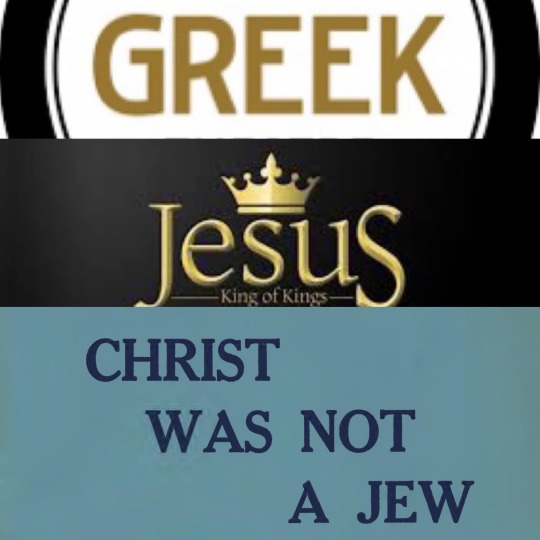
The Bible Says That The Messiah Will Not Come From Israel
Eli Kittim
Isaiah Declares That The Messiah Will NOT Come From Israel
In Isaiah 46:11 (KJV), God says: I will bring from a far country the Messiah who will execute my counsel (cf. Matt. 28:18; 1 Cor. 15:24-25):
Calling … the man that executeth my
counsel from a far country: yea, I have
spoken it, I will also bring it to pass; I have
purposed it, I will also do it.
For further biblical evidence concerning a Gentile Messiah, see the following paper: ⬇️
The Masoretic Text (Old Testament)
In Isaiah 46:11, the Hebrew word מֵאֶ֥רֶץ (mê·’e·reṣ) means “from the land” or “country,” while the word מֶרְחָ֖ק (mer·ḥāq) means “distant place” or “from afar.” Together they mean “from a distant place,” “from afar,” or “from a distant country.” Since God is speaking to the Israelites, it is obvious that the Messiah he has appointed to execute his counsel WILL NOT come from Palestine!
Isaiah 46:9-11 reads:
I am God, and there is none like me,
Declaring the end from the beginning, and
from ancient times the things that are not
yet done, saying, My counsel shall stand,
and I will do all my pleasure: Calling … the
man that executeth my counsel from a far
country: yea, I have spoken it, I will also
bring it to pass; I have purposed it, I will also
do it.
The Greek Old Testament (Septuagint)
This is also recorded in the Greek Old Testament of Isaiah 46:9-11. The LXX uses the word αὐτόν (autón)——which is the accusative masculine singular form of αυτός, meaning “him”——to describe the “man” who will be called “from a land afar off” to execute both God’s counsel and plans! The key word here is πόρρωθεν, which means “from a distance” or “from afar” (see Lk. 17:12; Heb. 11:13). It means that this messianic figure will come from a distant country. He is obviously not a native Israelite! Similarly, in Matt. 21:43, the literary Jesus promised that the kingdom of God will be taken away from the Jews and given to another nation. What is more, the covenant of the seed (in Genesis 12) is a reference to Christ. That is to say, the covenant is through Abraham’s seed, who **is** Christ (see Gal. 3:16). That’s why Isaiah 61:9 says that the Gentiles are the blessed posterity of God (through the messianic seed):
And their seed shall be known among the
Gentiles, and their offspring among the
people: all that see them shall acknowledge
them, that they are the [Messianic] seed
which the LORD hath blessed.
For further proof of a Greek Messianic line, see the following article: ⬇️
God is Called by a Gentile Name
Conclusion
Why is the New Testament written in Greek? It’s not because it was the lingua franca. If that was the case, we would expect the Dead Sea Scrolls to be written predominantly in Greek. Yet they were written in Hebrew for the most part. No! It has to do with the identity of the Messiah! Why does the literary Christ call himself the alpha and the omega (referring to the first and last letters of the Greek alphabet)? Why is John on the Greek island of Patmos to proclaim the testimony of Jesus on the Lord’s day? It isn’t because he is in exile. That’s an old wive’s tale… There is much much more that I obviously cannot reproduce, here, due to time constraints.
‘all the Gentiles … are called by My name,’
Says the LORD (Amos 9:12 NKJV).
For additional information on a Gentile Messiah, see the following article: ⬇️
The Evolution of a Gentile Messiah in the Bible
#TheJesusprophecy#biblicalJesus#Ἰαώ#Jesusidentity#GentileMessiah#ΕλιΚιτίμ#the little book of revelation#GreekChrist#GentileJesus#GreekMessiah#elikittim#τομικροβιβλιοτηςαποκαλυψης#Ἰάονες#IAONIANS#GentileChrist#foreignmessiah#ionia#Trigrammaton#IAO#TheGreekJesus#septuagint#Masoretic#JESUSISAGENTILE#GodisCalledbyaGentileName#Ιησούς#Yahva_Yahvan#alpha and omega#4Q120#tetragrammaton#dead sea scrolls
3 notes
·
View notes
Text
Melchizedek: Strange Jesus Parallels from the Old Testament - Historic Mysteries
https://www.historicmysteries.com/melchizedek/
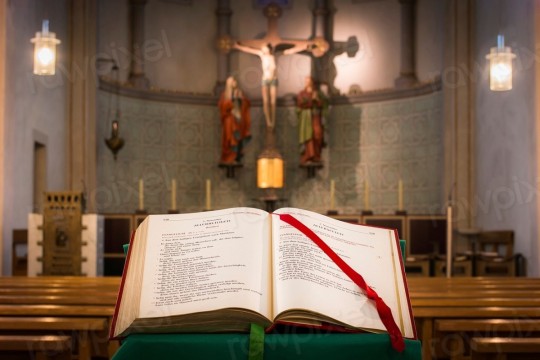
View On WordPress
#1611#971 BC#Abraham#Abram#bible#Book of Genesis#Book of Hebrews#Canaanite#Christianity#Davidic Dynasty#Genesis 14#Herod&039;s Temple#Israelites#Jerusalem#Jesus#Jewish bible#King Bera#King Chedorlaomer#King David#Levites#Lot#Malki-sedeq#Masoretic Hebrew#Melchizedek#Mesopotamia#New Testament#Old Testament#Patriarchs#Pentateuch#Psalms 110
0 notes
Text
Septuagint

View On WordPress
#Accuser#Alexandria#Content#Dead Sea Scrolls#Egypt#Greek#Hellenstic#Influence#Jewish diapora#LXX#Masoretic text#Old Testament#Samritan Pentateuch#Scholars#Septuagint
0 notes
Text
What is the primary sacred text of Judaism?
There are 24 books Judaism claims as its holy writings. They are the five books which tell of the origin of the Israelites and discuss the laws their God gave to them, the Torah (law); eight books written by or about the prophets of ancient Israel, the Neviʾim (prophets); and eleven books which contain wisdom and miscellaneous aspects of Israelite history, the Ketuvim (writings). Altogether, these books comprise the Tanakh.
The Christian Old Testament as used by Protestants has the exact same content as the Tanakh, but arranges the constituent books differently and usually splits the books of Samuel, Kings, Chronicles, and Ezra-Nehemiah into two each, and the book of the minor prophets into twelve. Jews are generally uncomfortable with this name, as it implies that the Tanakh is complete without the New Testament, along with different misconceptions on how Christians have translated and presented the Tanakh, discussed below. For the rest of this FAQ, this set of books will be referred to as the Tanakh except in its capacity of a constituent part of the Christian Bible.
Non-Protestant Christians include a number of books written during the Second Temple era or later in their Old Testament canons. These books are collectively known as the Apocrypha or Deutercanon, and are outside the scope of this FAQ.
What language(s) was the Tanakh written in?
Almost the entire Tanakh was written in Hebrew, while parts of the Daniel and Ezra(-Nehemiah), along with words and phrases from throughout the Tanakh, were written in Aramaic.
Was Biblical Hebrew written with vowels?
The Tanakh was originally written in a writing system called the Paleo-Hebrew alphabet, found in the Dead Sea Scrolls and other very early examples of Hebrew writing, and retained by the Samaritans. During the time of the Second Temple, the Jews gradually adopted a script derived from the Imperial Aramaic script, and modified it to become the square script, which is now the more familiar "Hebrew script." Both were ultimately derived from the Phoenician alphabet, and operate on similar principles, to the point where there is essentially a one-to-one correspondence. They are both technically defined as abjads rather than proper alphabets, the reason being that they lack letters whose primary use is to express vowel sounds.
Why wasn't Biblical Hebrew written using a system that clearly marked vowels?
Hebrew is a member of a larger family called the Semitic languages, most of which do not have (or did not use to have) many distinct vowels. Arabic only has three, and there is no strong evidence that Akkadian had more than four. Aramaic, Ge'ez and Amharic all have at least five, and there is evidence that Ugaritic did as well, but the additional vowels in these languages do not converge the way they would if they had been inherited from a common ancestor.
At the beginning of its written history, a predecessor of Hebrew, either Proto-Northwest Semitic or an immediate descendant, likely had three vowel qualities /a i u/. Its writing system, the Proto-Sinaitic alphabet, accordingly lacked vowel letters, as a given consonant sequence would have been substantially less ambiguous than in other languages with larger vowel inventories.
In the stages between PNWS and Hebrew, and in Hebrew itself, a number of different sound changes caused its vowel inventory to expand, ultimately adding two, possibly three, more vowel sounds /e o (ǝ)/. As Hebrew developed, so did the variant of the Proto-Sinaitic script used to write it, albeit more slowly, giving rise to both the Paleo-Hebrew alphabet and the square script. As the written forms of a language are more conservative than their spoken forms, and the changes which brought about these additional vowels were very gradual, there was no impetus for any group of scholars to sit down and propose the addition of vowel letters to be used in writing Hebrew before it went extinct around the beginning of the fourth century.
That being said, four letters, alpeh א, waw ו, he ה, and yodh י, used ordinarily to express consonants /ʔ w~v h j/, took on a secondary role of expressing vowels in variant spellings. The letters aleph and he were used for essentially any vowels, waw for rounded vowels, and yod for front vowels. In this capacity, such a letter is called an ʾem qriʾa or mater lectionis.
How do we determine the pronunciation of Biblical Hebrew if it is extinct and did not have proper vowel letters?
Hebraicists rely on a number of different methods for determining the pronunciation of Biblical Hebrew words. Even though Hebrew went extinct, it was retained liturgically in Judaism, leading to three different vocalizations, the Tiberian, Babylonian, and Palestinian. During the high middle ages, a group of Jewish scholars called the Masoretes developed systems of vowel markings called the niqqud to clarify these vocalizations in Hebrew writing. Only the Tiberian vocalization survived the middle ages or was extensively covered by niqqud, and it is referenced when determining the pronunciation of Biblical Hebrew.
The matries lectionis produced variant spellings of certain words, which also clarifies the pronunciation.
In ancient times, a Greek translation of the Tanakh was produced called the Septuagint (abbreviated LXX). Its origins are shrouded in fable, but it is generally agreed by historians of the Bible that in the mid-third century BC, about seventy rabbis gathered in Alexandria and translated at least the Torah into Hebrew, with the rest of the Old Testament completed by the first century. As Greek is written in a proper alphabet, the vowels used in proper nouns and loanwords give insight into how these words would have been pronounced in Hebrew.
Around the middle of the third century AD, a critical edition of the Tanakh called the Hexapla was produced. Consisting of six columns, it placed the Hebrew text alongside an attempt to write the Hebrew text with the Greek alphabet (in the second column, this text is called the Secunda), and four different Greek translations. Though it exists in fragmentary condition, the Secunda gives some insights into the pronunciation of Hebrew.
Syllable timing can be predicted based on Biblical poetry.
Finally, as it is part of a larger language family, Hebrew can be compared with other Semitic languages that have been spoken constantly since antiquity. Special emphasis is put on comparison to its closest living relatives, Aramaic and Arabic.
What is the Tetragrammaton?
It is a name for God used well over 6000 times in the Tanakh, spelled using four Hebrew letters, יהוה.
Have any of the above methods been useful in determining the pronunciation of the Tetragrammaton?
Judaism developed a taboo against pronouncing the Tetragrammaton during the Second Temple Period. For this reason, except for one possible exception (and even that is doubtful), no LXX manuscript presents a genuine effort to transliterate the Tetragrammaton; the only remaining fragments of the Secunda which include sections featuring the Tetragrammaton replace it with the Hebrew form amidst the Greek letters; and Tiberian vocalization lacks a pronunciation for it. In addition, all four of its letters can be matries lectionis, and it lacks known cognates in other Semitic languages.
Samaritanism developed the taboo later, and a group of Jewish mystics that survived a century or so after the destruction of the Second Temple never had it. In the fourth century, Theodoret, in his Quaestiones in Exodum, records a Samaritan pronunciation of /i.a.ve/, consistent with Clement of Alexandria recording a mystic pronunciation of /i.a.we/ in the fifth book of his Stromata. Since /v/ and /w/ were never distinguished readily in any form of Hebrew, this points to a pronunciation /jah.weh/, hence the spelling Yahweh.
The name "Jehovah" was an earlier rendering of the name, produced from a misconception among Christian Hebraists when encountering the Tetragrammaton in Masoretic texts. To prevent anyone from even accidentally saying the name aloud, a practice arose of saying it with the vowels in the word for "Lord," אדוני adonai. Christian Hebraicists did not realize this was a hybrid word and thought it was God's actual name, producing /ja.ho.vah/, eventually Jehovah.
Is Lashawan Qadash as promoted by various Black Hebrew Israelite groups remotely authentic to the actual pronunciation of ancient Hebrew?
As with almost all other particular teachings of the BHIs, the Lashawan Qadash lacks any kind of historical evidence and is easily disproven.
For example, under LQ, the name of God is not "Elohim," but rather "Alahayam." However, the first element is cognate with Arabic إله /ʔi.laːh/ and is an element of a mile-long list of different theophoric names from the Tanakh, such as Elijah, Daniel, etc, consistently spelled ηλ /eːl/ in the LXX. This points to a front vowel, both long before Hebrew became a distinct language, and towards its extinction. The second vowel is confirmed by the spelling variant which includes a waw, indicating a rounded vowel. However, the BHIs who employ LQ do not use a variant "Alahawayam." The word itself is the plural of the word "eloah" (please note that verbs always indicate grammatical number in Hebrew, and that the actions of the God of Israel are described using singular verbs in the Tanakh) which has always had a letter waw. The same plural ending shows a consistency with vowels in Aramaic plural endings. The pronunciation of the entire word is consistent with the form ελωειμ as found in the Secunda for Psalm 72:18. Black Hebrew Israelitism is usually conspiratorial, and BHIs will suggest the pronunciations of Hebrew proposed through accepted methods of historical methods are actually some kind of wicked plot perpetrated by the Jesuits, Masoretes, adherents of Babylonian mystery religion, or some combination thereof, usually in cahoots with each other. Whatever shadowy force(s) which acted to produce the pronunciation "Elohim" would have had to alter every last Hebrew scroll and carving which contains the singular "eloah," waw in tow, and every last Septuagint and New Testament manuscript containing a theophoric name containing "El" to include the letter ēta, including those manuscripts which laid in dark caves and buried in the desert for centuries; every remaining Secunda fragment to spell the name as ελωειμ; convinced millions of Arabic speakers, men, women, and children, rich and poor, to say "ilah" and write accordingly; and convinced millioned of Aramaic speakers, men, women, and children, rich and poor, to use front vowels when saying nouns in the plural, and write accordingly, centuries before anyone seriously proposed that Arabic, Aramaic, and Hebrew were related languages. This is all that would have had to have been done just to deceive the whole world of the pronunciation of just one word. There are far more words which also present a host of problems under LQ.
The existing evidence suggests that LQ originated in 20th-century Harlem, without any historical precedent whatsoever, and does not belong in any serious discussion of Biblical Hebrew.
Why is it said that Hebrew "went extinct" when it has been in constant use by the Jews until the present day?
The term "extinction" in linguistics is used of languages without living native speakers. When the last native speaker of a language dies, that language is then extinct. Sumerian is extinct. Ancient Egyptian is extinct. Gaulish is extinct. Wampanoag is extinct. Ubykh is extinct. No informed person disputes any of these languages are actually extinct. However, many Jews and philosemites take offense at the term "extinction" when used to describe the ultimate fate of Biblical Hebrew.
The fact of the matter is that Assyria dispersed most of the tribes of Israel, and Babylon captured what was left. We do not know what happened to the 10 lost tribes, but the members of Judah and Levi began to speak Aramaic. Even after Cyrus the Great allowed the Jews to resettle Judaea, most Jews continued to speak Aramaic and teach it to their children. Through the Second Temple Era, Hebrew went from threatened to endangered. It did not matter that Hebrew was used in the synagogues; whether a language is alive or dead is determined at the cradle rather than the altar.
Bar Kochba attempted to reinvigorate Hebrew during his revolt around AD 130. After this revolt was suppressed by the Romans, any hope of Hebrew continuing were essentially dashed. The Mishnah, thought to have been among the final documents written in Hebrew during the lifetime of any native speakers, was completed around the turn of the third century, and was in a form that showed obvious changes one would expect of a language approaching extinction. There is not a shred of evidence that there were any native speakers more than a century after the Mishnah.
Extinct languages find use liturgically in different religious traditions throughout the world. No Jewish person or philosemite would deny, given sufficient information, that Avestan is extinct, despite its continuing use in Zoroastrianism. Nor would they deny the same about Coptic, Latin, Ge'ez, or Sanskrit, nor would they deny that Sumerian was in use by various pagan groups as long as 2000 years after it went extinct. Yet, for these same people, it is "inaccurate" or even "bigoted" to suggest the same regarding Hebrew. The knowledge of Hebrew during late antiquity and the middle ages was restricted almost exclusively to rabbis and Jewish literati, exactly 100% of whom spoke some other language natively. Yes, Hebrew was revived during the modern period, but it took great effort in creating enough vocabulary to describe the modern world, and there are enough difference between modern and Biblical Hebrew to motivate Avraham Ahuvya to create a modern Hebrew translation (for lack of a better term) of the Tanakh.
Simply put, if these people want to discuss historical linguistics, they need to use terms which are found in historical linguistics, as they are defined by historical linguistics, terms which specialists in the field, Jew and gentile, accepted a long time ago. This includes the term “extinction.”
Why don't Christians use Hebrew source texts when translating the Tanakh?
They do, and have been doing so constantly since the Reformation.
The printed Hebrew edition of the Tanakh, by Daniel Bomberg, was arranged from several Masoretic manuscripts collected and collated by Jacob ben Hayyim. This was the primary base text of the Old Testament in all Protestant English translations of the Bible from at least the Geneva Bible (first published 1557) up until at least the Revised Version (published 1885), and seemingly the Darby Bible of 1890 and American Standard Version of 1901. Only Catholic Bibles used the Vulgate as a source, and an obscure translation of the LXX by Charles Thompson was printed in 1808; this translation made its source clear on the title page, not that almost anyone paid attention to it.
A scholar of the Tanakh named Rudolph Kittel collated an even greater set of Masoretic manuscripts, creating the Biblia Hebraica Kittel (BHK), first published 1906. Later, it was determined that a manuscript, which had been produced in Cairo, mysteriously ended in the possession of a Russian Jewish collector named Abraham Firkovich, was displayed in Odessa, and then later in St. Petersburg (later Leningrad) was in fact the oldest complete copy of the Tanakh in Hebrew. It is now known as the Westminster-Leningrad Codex, and was made the primary source of printings of the BHK from 1937 onward, and by extension the OT of the Revised Standard Version. It later became the primary basis of the Biblia Hebraica Stuttgartensia (BHS), first published 1968, and by extension the OT in the New American Standard Bible, New International Version, Good News Bible, New RSV, New KJV, Contemporary English Version, World English Bible, English Standard Version, and New Living Translation, just to name a few. Another printed edition of the Old Testament in Hebrew, the Biblia Hebraica Quinta, was completed last year, also derived from the WLC, and there is no reason to believe it will not serve as the basis of future translations.
The LXX, Targumim, Dead Sea Scrolls, and Samaritan Pentateuch are occasionally consulted, mostly to illuminate the meaning of obscure Hebrew words or phrases, or solve inconsistencies among Masoretic manuscripts. The translators invariably place conspicuous footnotes to indicate such. If you do not believe Jewish translators of the Tanakh do the same thing, you need to explain how “amber” appears three separate times in the book of Ezekiel (1:4, 1:27, and 8:2) in the JPS Tanakh, in exactly the same places as it appears in Christian translations, despite the mystery which would surround the meaning of the base word, חשמל apart from the LXX.
#Hebrew#Hebrew language#Hebraicist#Hebraicists#Hebrew studies#Tetragrammaton#Language death#Tanakh#Old Testament#Seputagint#LXX#Dead Sea Scrolls#DSS#Targum#Targumim#Masoretes#Masoretic#Textual criticism#History of the Bible
0 notes
Text
Translating the Bible: Dealing with the Tiqqune Sopherim
Translating the Bible: Dealing with the Tiqqune Sopherim
Bible Translations
In their book, People of the Covenant, Flanders, Crapps, and Smith describe the work of the scribes who preserved the text of the Hebrew Bible. They wrote,
“The Jewish scholars who copied and safeguarded the manuscripts were called Sopherim (“men of the book”) and Masoretes (“men of the Masora”). The Sopherim . . . copied manuscripts, marked doubtful passages, added marginal…
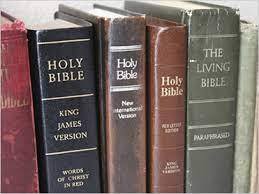
View On WordPress
#Habakkuk#Hebrew Bible#Masoretes#Old Testament#Scribes#Sopherim#Tiqqune Sopherim#Translation Problems
0 notes
Text
Watching a debate between a Jewish and Christian scholar is fascinating, because there is as stark difference in how the Christian and Jewish person will conduct themselves when they stand at the podium. Obviously, there is a sense of professionalism, but there will also be a manner of articulating your points and arguments from boths sdies.
The Jewish scholar tends to be academical and often refer to sources to debuke any Christological and ecclesial supposition about the Tanakh/OT, whereas the Christian often appeals to emotion and will speak in a charismatic way to reinforce his belief in Christ rather than to substantiate their argument. The other issue I find with the Christian debater is that they attempt to substantiate their belief through the New Testament, a scripture which holds no weight to a Jewish person; it is as useful as a brick.
The challenge in debating a Jewish scholar is the fact that a Jewish scholar studies Hebrew and Aramaic and are often fluent in respective language, thus possessing an advantage in textual and hermeneutical analysis of the Masoretic text, whereas a Christian often make use of an already translated Bible, which has been prone to corruption, distortion and christological alterations throughout centuries.
548 notes
·
View notes
Text
thinking about how the bible lacks punctuation and, until the masoretes, lacks even vowels. i mean that this text, for thousands of years, had no commas, periods, full words even. thinking about how this refusal to offer linguistic pointing keeps the text oral: chains of signifiers matter only when pronounced, here. pauses and rushes and breaks are legible only when you try to find them out-loud. i am trying to talk about how the semiotic rubric of the bible is an affective, shared one. about how a text that does not presume an internal voice places, instead, the ego and its subject formation outside the perimeter of skin. this is a kind of co-poiesis wherein your body meant something only in ethical relationship, in spoken word, in knowing that the g(od) spot wasn't hidden away in some orifice after all
46 notes
·
View notes
Note
my understanding of the apocrypha were most were recognized as canon by the Roman Catholic Church and other Orthodox Churches but as I'm trying to find more information online I'm getting more confused about what's considered canon by who (mostly the Roman Catholic Church as that is what I was raised in) do you have resources that clearly explain and/or list which denominations recognize which apocrypha?
So there’s a distinction to be made between what we on the show call capital-A Apocrypha and lower case-a apocrypha.
The capital-A type is also known as the Deuterocanon, and it represents the various late-era books that are present in the Greek translation of the Hebrew Scriptures called the Septuagint, but which are *not* included in the authoritative Hebrew text of the Bible known as the Masoretic text. (NB: the Septuagint is many centuries older than the Masoretic text.)
When Martin Luther translated the Bible into German, he separated these texts and put them at the end as being worthy of study but not as authoritative as the other material. Later American English editions of the Bible would subsequently cut the Apocrypha/Deuterocanon altogether to save on printing costs. So if you grew up in a Protestant church and don’t know what Bel and the Dragon is, that’s why.
These books include Tobit, Judith, and 1 and 2 Maccabees, among about a dozen others. You will find these in pretty much any Catholic Bible.
In addition, the Eastern Orthodox Church accepts a small handful more, including 3 and 4 Maccabees, 1 and 2 Esdras, and a bonus Psalm. If you buy a copy of a study version of the NRSV such as a NOAB or the new SBL study Bible, you should find that it contains all of the Deuterocanon of both the Catholic and Eastern Orthodox churches.
Where things start to get broader is in some of the Oriental Orthodox churches, most notably the Ethiopian Orthodox Tewahedo Church, which has over 80 books in its broader canon (numbers differ), including Jubilees and 1 Enoch.
Where the confusion comes, I think, is from the fact that the word apocrypha is also used to refer to works that were never part of any official canon despite their popularity and influence. Elements of these books have come into Catholic belief through tradition, however, even though they have never been official scripture. The Infancy Gospel of James is a major example of a book that has never been canon but which nevertheless has had an outsize influence on Catholic teaching.
Wikipedia has a chart that you may or may not find useful depicting which books are canon where
A short rule of thumb is this: the only Apocrypha considered canon by any church is Jewish in origin. There is no New Testament apocrypha held as canon by any major church
63 notes
·
View notes
Text

Jesus Vs. Satan
And I will put enmity between thee and the woman, and between thy seed and her seed; they shall bruise thy head, and thou shalt bruise their heel.’
— Genesis 3:15 | JPS Tanakh 1917 (JPST)
The Holy Scriptures according to the Masoretic text; Jewish Publication Society 1917.
Cross References: Luke 24:27; Romans 16:20; Revelation 12:17
#Jesus#enmity#satan#spiritual warfare#Genesis 3:15#Book of Genesis#Old Testament#JPST#JPS Tanakh 1917#Jewish Publication Society 1917#The Holy Scriptures according to the Masoretic text
6 notes
·
View notes
Text
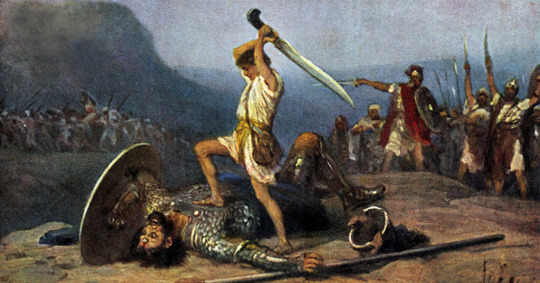
Goliath (/ɡəˈlaɪəθ/ gə-LY-əth)[a] is a Philistine warrior in the Book of Samuel. Descriptions of Goliath's immense stature vary among biblical sources, with the Masoretic Text describing him as 9 feet 9 inches (2.97 m) tall. Goliath issued a challenge to the Israelites, daring them to send forth a champion to engage him in single combat; he was ultimately defeated by the young shepherd David, employing a sling and stone as a weapon. The narrative signified King Saul's unfitness to rule, as Saul himself should have fought for Israel.
Modern scholars believe that the original slayer of Goliath may have been Elhanan, son of Jair, who features in 2 Samuel 21:19, in which Elhanan kills Goliath the Gittite, and that the authors of the Deuteronomic history changed the original text to credit the victory to the more famous character David.
The phrase "David and Goliath" has taken on a more popular meaning denoting an underdog situation, a contest wherein a smaller, weaker opponent faces a much bigger, stronger adversary

Goliath's name
Tell es-Safi, the biblical Gath and traditional home of Goliath, has been the subject of extensive excavations by Israel's Bar-Ilan University. The archaeologists have established that this was one of the largest of the Philistine cities until destroyed in the ninth century BC, an event from which it never recovered. The Tell es-Safi inscription, a potsherd discovered at the site, and reliably dated to between the tenth to mid-ninth centuries BC, is inscribed with the two names ʾLWT and WLT. While the names are not directly connected with the biblical Goliath (גלית, GLYT), they are etymologically related and demonstrate that the name fits with the context of the late tenth- to early ninth-century BC Philistine culture. The name "Goliath" itself is non-Semitic and has been linked with the Lydian king Alyattes, which also fits the Philistine context of the biblical Goliath story. A similar name, Uliat, is also attested in Carian inscriptions. Aren Maeir, director of the excavation, comments: "Here we have very nice evidence [that] the name Goliath appearing in the Bible in the context of the story of David and Goliath… is not some later literary creation."
Based on the southwest Anatolian onomastic considerations, Roger D. Woodard proposed *Walwatta as a reconstruction of the form ancestral to both Hebrew Goliath and Lydian Alyattes. In this case, the original meaning of Goliath's name would be "Lion-man," thus placing him within the realm of Indo-European warrior-beast mythology.
The Babylonian Talmud explains the name "Goliath, son of Gath" through a reference to his mother's promiscuity, based on the Aramaic גַּת (gat, winepress), as everyone threshed his mother like people do to grapes in a winepress (Sotah, 42b).
The name sometimes appears in English as Goliah
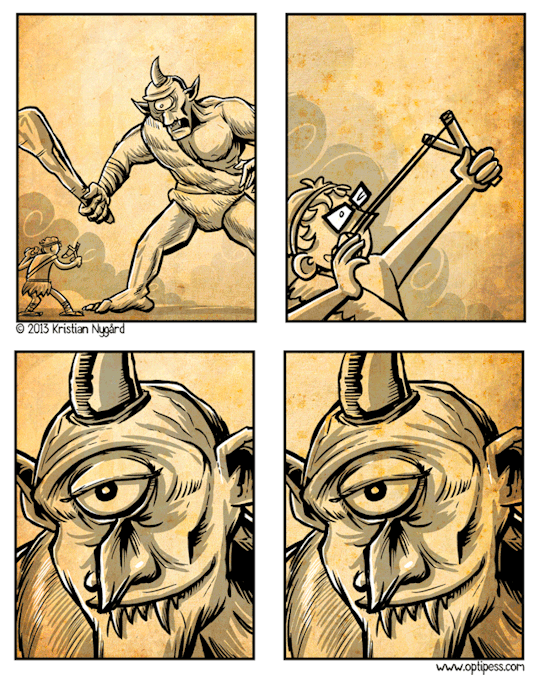
Elhanan, son of Jaare-Oregim the Bethlehemite (Hebrew: אֶלְחָנָן בֶּן־יַעְרֵי אֹרְגִים בֵּית הַלַּחְמִי ʾElḥānān ben-Yaʿrē ʾŌrəgīm Bēṯ halLaḥmī) is a character in 2 Samuel 21:19, where he is credited with killing Goliath:
"There was another battle with the Philistines at Gob, and Elhanan son of Jaare-oregim the Bethlehemite killed Goliath the Gittite, the shaft of whose spear was like a weaver's beam."[1]
In 1 Chronicles 20:5, he is called Elhanan son of Jair (אֶלְחָנָן בֶּן־יָעִיר ʾElḥānān ben-Yāʿīr), indicating that Jaare-oregim is a garbled corruption of the name Jair and the word for "beam" used in the verse (ʾōrəgīm). The passage in 2 Samuel 21:19 poses difficulties when compared with the story of David and Goliath in 1 Samuel 17, leading scholars to conclude "that the attribution of Goliath's slaying to David may not be original," but rather "an elaboration and reworking of" an earlier Elhanan story, "attributing the victory to the better-known David.

14 notes
·
View notes
Text
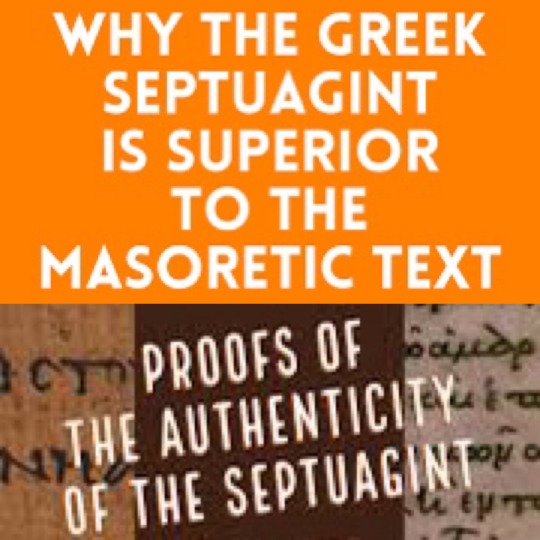
Was the Septuagint Destroyed When the Library of Alexandria Was Burnt Down in 48 BC?
By Author Eli Kittim 🎓
The Argument
Some people (typically Jewish apologists) claim that the Septuagint doesn’t exist because it was destroyed when the Library of Alexandria was burnt down in 48 BC.
This conclusion, however, is both textually misleading & historically erroneous.
First
The Alexandrian Library and its collection were not entirely destroyed. We have evidence that there was only partial damage and that many of its works survived. According to Wiki:
The Library, or part of its collection, was
accidentally burned by Julius Caesar during
his civil war in 48 BC, but it is unclear how
much was actually destroyed and it seems
to have either survived or been rebuilt
shortly thereafter; the geographer Strabo
mentions having visited the Mouseion in
around 20 BC and the prodigious scholarly
output of Didymus Chalcenterus in
Alexandria from this period indicates that
he had access to at least some of the
Library's resources.
Second
The Septuagint had already been written and disseminated among the diaspora since the 3rd century BC, and so many of its extant copies were not housed in the Library of Alexandria per se.
Third
Textual Criticism confirms that the New Testament authors used the Septuagint predominantly and quoted extensively from it. If the Septuagint didn’t exist, where did the New Testament authors copy from? And how do you explain the fact that the New Testament and the Septuagint often have identical wording in their agreements?
Fourth
The Dead Sea Scrolls also demonstrate that the Septuagint was far more accurate than the 10th-century-AD Masoretic text. See, for example, the textual controversy surrounding Deuteronomy 32:8. Both the Dead Sea Scrolls and the Septuagint have “sons of God.” The Masoretic text is demonstrably inaccurate because it has “sons of Israel,” a later redaction. Israel didn’t even exist at that time!
Fifth
Emanuel Tov, a leading authority on the Septuagint who has explained the various textual families (or text-types) of the Old Testament, never once mentioned that we lost the Septuagint, or that it was destroyed, or that it was no longer in circulation. On the contrary, he claims that it continued to be in use during the Christian period and that it is much more older than the 10th-century-AD Masoretic text, which the Jews call the “Hebrew Bible.”
Sixth
If the Septuagint was completely destroyed, as some have erroneously suggested, from where were the later revisionists and translators copying from? We have historical evidence that they were, in fact, copying from the Septuagint itself. Wiki writes:
Theodotion … was a Hellenistic Jewish
scholar, … who in c. 150 CE translated the
Hebrew Bible into Greek. … Whether he was
revising the Septuagint, or was working
from Hebrew manuscripts that represented
a parallel tradition that has not survived, is
debated.
So there’s evidence to suggest that the Theodotion version is a possible *revision* of the Septuagint. This demonstrates that the Septuagint existed in the second century AD! Otherwise, where was Theodotion copying from if the Septuagint didn’t exist?
Seventh
The great work of Origen, Hexapla, compiled sometime before 240 AD, is further proof that the Septuagint was still in use in the 3rd century AD! Wikipedia notes the following:
Hexapla … is the term for a critical edition
of the Hebrew Bible in six versions, four of
them translated into Greek, preserved only
in fragments. It was an immense and
complex word-for-word comparison of the
original Hebrew Scriptures with the Greek
Septuagint translation and with other Greek
translations.
Encyclopedia Britannica adds:
In his Hexapla (“Sixfold”), he [Origen]
presented in parallel vertical columns the
Hebrew text, the same in Greek letters, and
the versions of Aquila, Symmachus, the
Septuagint, and Theodotion, in that order.
Eighth
Besides Origen’s Hexapla, we also have extant copies of the Septuagint. According to wiki:
Relatively-complete manuscripts of the
Septuagint postdate the Hexaplar
recension, and include the fourth-century-
CE Codex Vaticanus and the fifth-century
Codex Alexandrinus. These are the oldest-
surviving nearly-complete manuscripts of
the Old Testament in any language; the
oldest extant complete Hebrew texts date
to about 600 years later, from the first half
of the 10th century.
Ninth
There’s also historical and literary evidence that the Greek Septuagint was in wide use during the Christian period and beyond. Wiki says:
Greek scriptures were in wide use during
the Second Temple period, because few
people could read Hebrew at that time. The
text of the Greek Old Testament is quoted
more often than the original Hebrew Bible
text in the Greek New Testament
(particularly the Pauline epistles) by the
Apostolic Fathers, and later by the Greek
Church Fathers.
Tenth
Today, Biblical scholarship has a *critical edition* of the Septuagint. If it was destroyed in 48 BC, where did the critical edition come from? The Göttingen Septuaginta (editio maior) presents *a fully critical text* and should silence the skeptics and critics who try to mislead the public. They deliberately mislead the public by trying to discredit the far more reliable and much older Septuagint in order to get people to accept the much later Hebrew Masoretic text from the Middle Ages!
#lxx#septuagint#Library of Alexandria#Strabo#textual criticism#Masoretic#EliKittim#NewTestamentGreek#dead sea scrolls#Deuteronomy32v8#EmanuelTov#SBL#Theodotion#the little book of revelation#HebrewScriptures#origen#Hexapla#aquila#julius caesar#IOSCS#Symmachus#ελικιτίμ#GreekOldTestament#critical edition#ΜετάφρασητωνΕβδομήκοντα#biblicalgreek#GöttingenSeptuaginta#τομικρόβιβλίοτηςαποκάλυψης#ΕλληνιστικήΚοινή#ΑγίαΓραφή
9 notes
·
View notes
Text
MJF meta:
I'm not sure if anyone else has pointed this out but Maxwell's out of kayfabe middle name isn't Jacob, which means he purposefully chose that name for himself. As someone who is known for including bits and peices of his faith in his story and character, I wonder if he was influenced by the story from the Masoretic text of Jacob who wrestled with an angel of g-d all night until the angel blessed him.
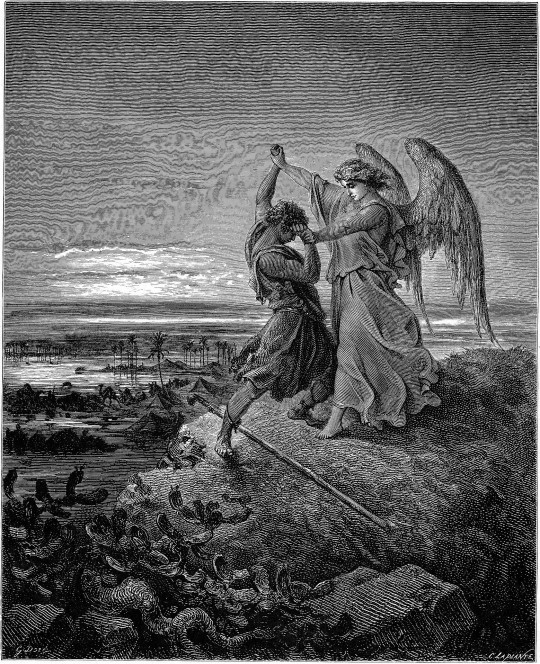
#thinking about religious imagery in wrestling#and how max like to combine his judaism with his story#aew#all elite wrestling#mjf#maxwell jacob friedman
47 notes
·
View notes
Text
Unicorns of the Bible

Job 39:9 (KJV) "Will the unicorn be willing to serve thee, or abide by thy crib?"
Job 39:10 (KJV) "Canst thou bind the unicorn with his band in the furrow? or will he harrow the valleys after thee?"
Psalm 92:10 (KJV) "But my horn shalt though exalt like the horn of an unicorn: I shall be anointed with fresh oil."
Deuteronomy 33:17 (KJV) "His glory is like the firstling of his bullock, and his horns are like the horns of unicorns: with them he shall push the people together to the ends of the earth: and they are the ten thousands of Ephraim, and they are the thousands of Manasseh."
Numbers 23:22 (KJV) “God brought them out of Egypt; he hath as it were the strength of an unicorn.”
Numbers 24:8 (KJV) “God brought him forth out of Egypt; he hath as it were the strength of an unicorn: he shall eat up the nations his enemies, and shall break their bones, and pierce them through with his arrows.”
Isaiah 34:7 (KJV) "And the unicorns shall come down with them, and the bullocks with the bulls; and their land shall be soaked with blood, and their dust made fat with fatness."
Psalm 29:6 (KJV) "He maketh them also to skip like a calf; Lebanon and Sirion like a young unicorn."
Note: When considering the most popular English translations of the Christian Bible - including the Hebrew texts, of which all of these verses originate- the King James Version (KJV) is considered to be one of the least accurate to the original language, despite using the Masoretic Hebrew as the reference text, which is used as the authorative Hebrew. No other popular translations use "unicorns." Instead, the reader will usually see "wild ox."
[I'm a seminarian who has several semesters of Biblical Greek and Hebrew]
#good omens#hermeneutics#gomens#noah's ark#unicorns#unicorns of the Bible#crowley#good omens season 1#gomens 1#gomens season 1#good omens 1#neil gaiman#bible#unicorn#oy shem
20 notes
·
View notes